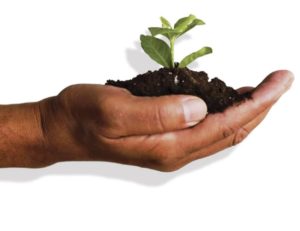I’m continuing my reading and working with Goldberg’s Writing Down the Bones. I’m finding it helpful for me, as a writer (how weird is it to apply that title to myself, even though that’s what I am, and have always been), but also I’m trying to see it through the lens that my students might use. I know that they struggle – as do I – in finding ways to make their writing work for them, and to make it do the things that they plan or envision. Where I think we differ is that I already trust the process, and know that if I keep doing what I’m doing, I’m going to get at least a reasonably decent bit of writing out of this exercise, eventually. They don’t have the experience with writing that I do (obviously – that’s what school is for, after all), and my job is to (among other things) offer them opportunities to engage with the process, and develop that trust.
That’s a big part of what Goldberg is discussing when she talks about “composting,” because basically, you’re getting out there and working in the dirt, and not seeing any real improvement, you’re just poking around in the soil. That’s what composting is – it’s bringing air to garbage, bringing important bits together like a recipe, even if you don’t quite see how that’s going to be any good at all later.
Goldberg reminds us that this sort of work takes time, and she offers us a definition of that work as “composting” when she writes that our “senses by themselves are dumb. They take in experience, but they need the richness of sifting for a while through our consciousness and through our whole bodies. I call this ‘composting’” (15). Trying to write about something before it’s been fully composted is going to get you a bunch of…well, garbage. I tried to write about some life experiences that I knew were important, and that I knew could be useful to other people in my situation, and it was just flat. The words were “thrown-out egg shells, spinach leaves, coffee grinds, and old steak bones” without the opportunity that I was able to give myself to think on the whole thing (15).
Obviously, it’s not possible to compost things for your writing only after the experience is done. Some things are things that don’t ever end – you can’t wait to write about them until you’ve navigated the entirety of the experience because that will never happen. The experience continues throughout your life, and at no point will you have time to compost it in its entirety – we do eventually run out the clock, after all. But we can compost the various bits of it, and I think that for me this is important to do. I’ve got to work on seeing My Story as discrete parts that make up the larger whole, but ultimately, it’s not ever going to be done, even when, according to the world, the laws, the people around me, it should no longer affect me. So I can’t compost the whole thing – I can’t save up all the bits forever. If I tried to do that, I’m afraid that I’d wind up hauling this garbage around with me forever, and part of my intention in actually telling My Story is to unload all these damn egg shells, coffee grounds, and smelly garbage.
Another important aspect of the concept of composting is that it answers a concern I have had myself, and have encountered in much of the academic discussion of personal writing: it’s just damn navel gazing, and what good comes of that in academic work? Goldberg addresses that nicely when she writes that her students who are clearly composting “are raking their minds and taking their shallow thinking and turning it over. If we continue to work with this raw matter, it will draw us deeper and deeper into our selves, but not in a neurotic way. We will begin to see the rich garden we have inside us and use that for writing” (16). I see part of my job with my students to be introducing them to new tools they can use in their lives to help them navigate tough decisions, and to help them think in my complex, nuanced ways. Writing helps us to do that, and our first and best area of consideration (we can’t help it, as humans) is always ourselves. I have worried myself that the writing I have my students do is too fluffy for academic vigor, and that it’s not working the muscles they need to develop enough, but Goldberg has connected the dots here for me in a way that I had not considered previously.
Finally, I have to comment about the visual with this page. As you can imagine, if you Google image search for compost, you will get scads of pictures of piles of dirt. You’ll also gets lots of photos of dirt with hands either IN the dirt, or offering the dirt to the viewer. I had to scroll WAAAAAY too far down the page to find a set of brown hands. My privilege astounds me sometimes, and really pisses me off a lot.
